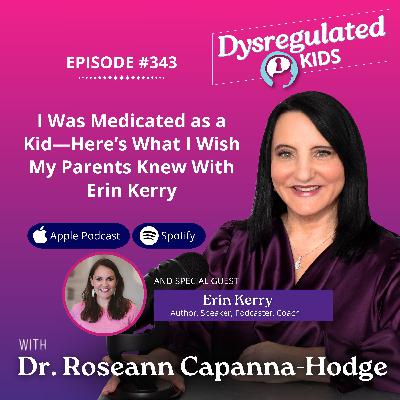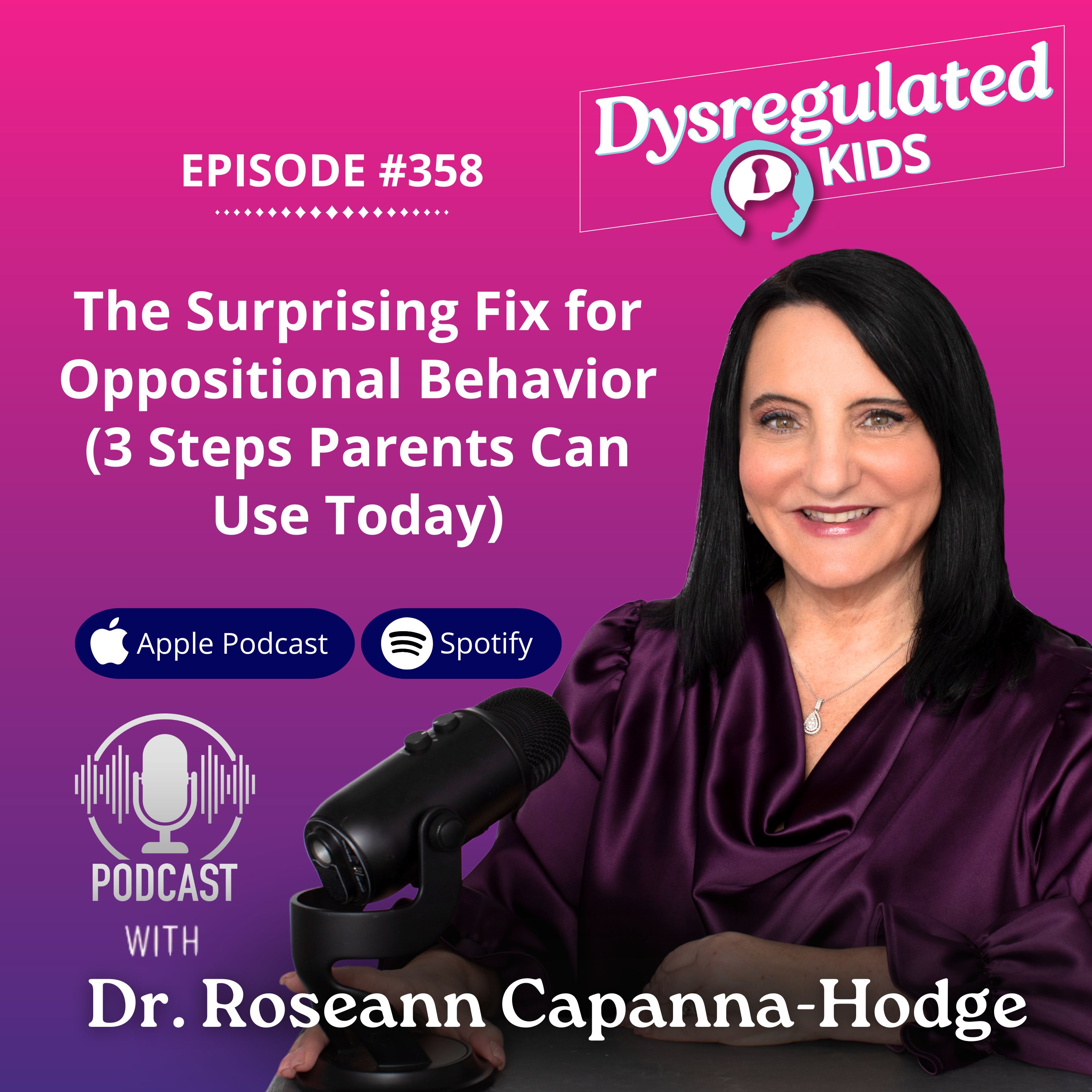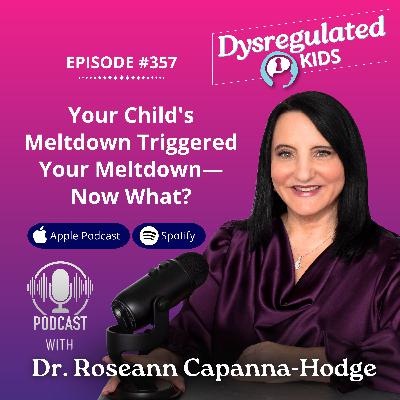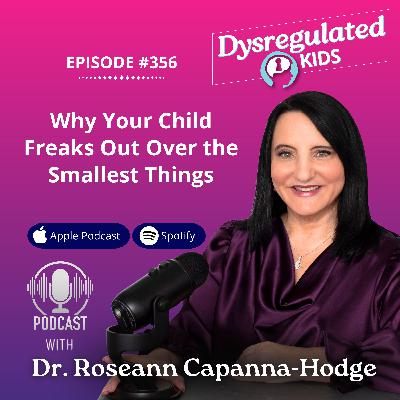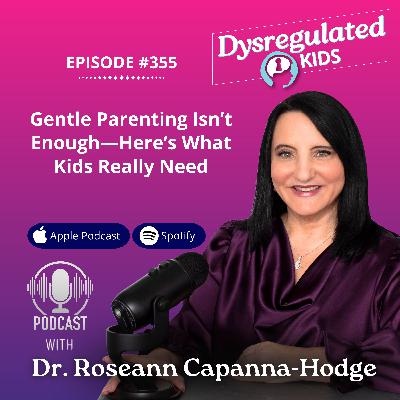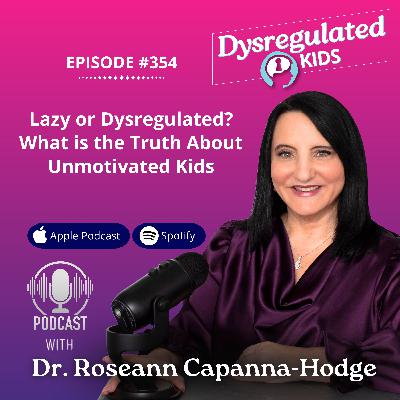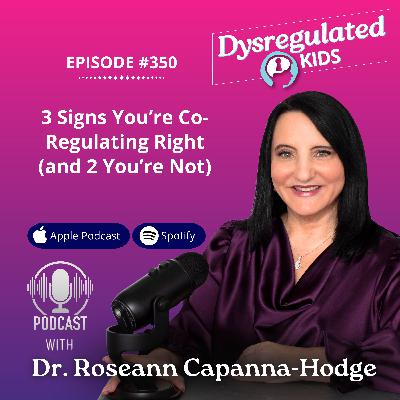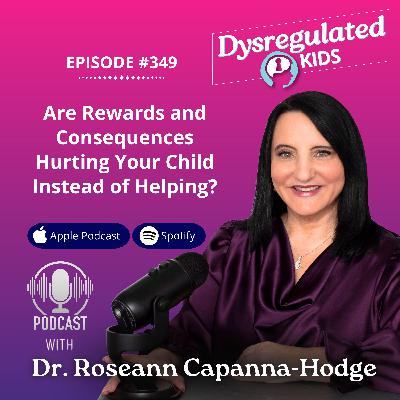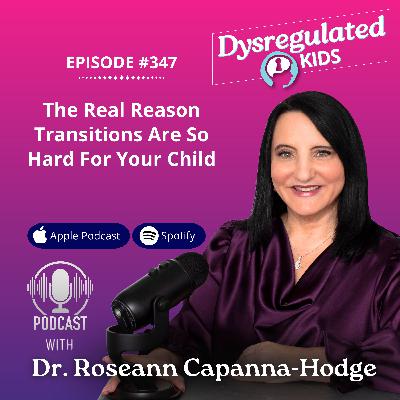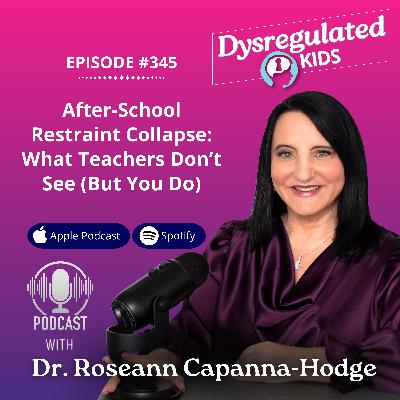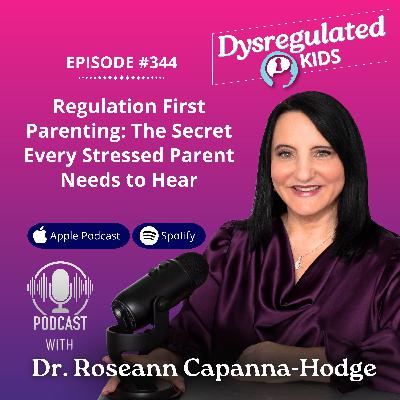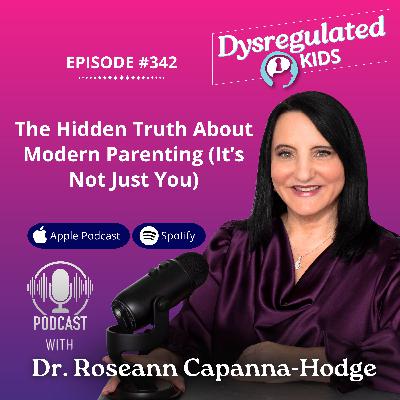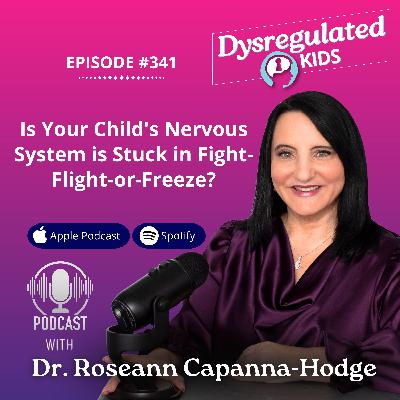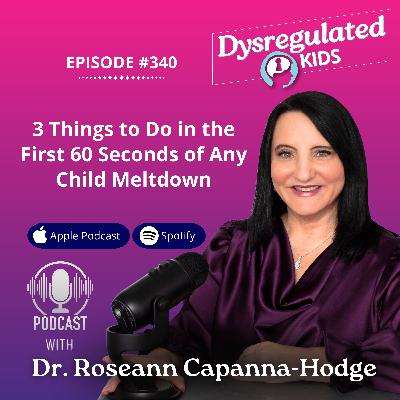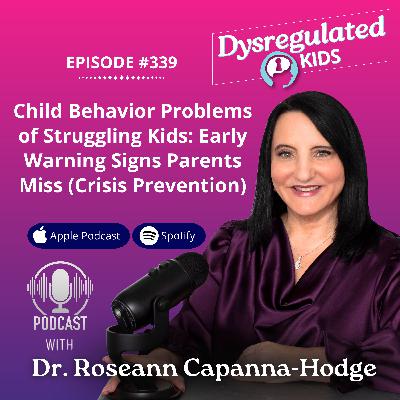343: I Was Medicated as a Kid—Here’s What I Wish My Parents Knew With Erin Kerry
Description
Parenting a child in emotional pain is exhausting — you’re not imagining it. You’re not alone. In this episode, I sit down with Erin Kerry, where we dig into a woman’s experience of misdiagnosis, heavy psychiatric medication, and the healing path she found beyond labels.
Why this matters: Too often medication is the first line of defense for children and adolescents. Erin’s story shows how medical history, toxins, infections, and trauma can masquerade as psychiatric disorders — and why a comprehensive treatment plan matters for your child’s life and daily functioning.
What you’ll learn: signs that behavior may be nervous-system driven, real risks of early psychotropic medication (including selective serotonin reuptake inhibitors), when to seek second opinions, and alternatives that helped Erin recover.
Why does my child have sudden mood swings — could it be bipolar or something else?
Look beyond labels. Sudden shifts can come from infections, toxin exposure, PTSD, or PANS/PANDAS as well as bipolar disorder. It’s scary when your child seems ‘possessed’ or out of control.
Takeaway: Ask about medical triggers (ear infections, mold, immune issues) before assuming a lifelong psychiatric diagnosis.
Parent Tip: Request a full medical review from your child’s doctor and consider immune or toxin screening.
You don’t have to figure this out alone.
Become a Dysregulation Insider VIP and get your FREE Regulation Rescue Kit: How to Stay Calm When Your Child Pushes Your Buttons and Stop Oppositional Behaviors.
Head to www.drroseann.com/newsletter and start your calm parenting journey today.
How risky is starting antidepressants or other psychiatric medication for kids?
When it comes to childhood mental health medication, it’s important for parents to know the meds. While SSRIs and other prescriptions can be helpful, in adolescents they may sometimes increase the risk of depression or self-harm.
Erin shared how her own child worsened after starting Zoloft, later being prescribed heavy drugs like Depakote, lithium, and Seroquel. The experience was devastating for her family and highlights why medication isn’t always the right first step.
Parents should always weigh the risks, monitor mood closely, and insist on a clear treatment plan with ongoing follow-up.
Parent tips for navigating childhood mental health medication:
- Get informed about side effects, drug interactions, and dosage.
- Ask for the lowest effective dose.
- Request frequent reassessments and clear communication from providers.
How can I help my child without making medication the first move?
When considering childhood mental health medication, it’s essential to start with nervous-system care. Let’s calm the brain first by looking at foundational areas like sleep, gut and immune health, trauma processing, and classroom accommodations before jumping straight to pills. Addressing these whole-child needs often creates meaningful progress without immediately turning to medication.
Key takeaway: Behavior is communication. By addressing the medical, nutritional, emotional, and environmental factors, you support true healing instead of just managing symptoms.
Parent tip: Try a multi-disciplinary team for the best results. This may include:
- A pediatrician for medical oversight
- Child psychiatrists for second opinions
- Therapists for emotional support and trauma processing
- School staff to provide classroom accommodations
When should I ask for a second opinion or rethink the treatment plan?
Trust your instincts. If your child gets worse, shows new self-harm, or feels “flat” and not themselves, seek another clinician. You deserve answers and your child deserves better.
Second opinions can save a child’s future. Ask about alternative diagnoses, off-label use of medications, and non-drug therapies.
Parent Tip: Document behavior, mood swings, sleep, and school impact to bring to the next appointment.
🗣️ “This episode is a heartfelt reminder: labels don’t have to define your child. There are safer routes and whole-child approaches that can restore function and joy.” – Dr. Roseann
Feel like you’ve tried everything and still don’t have answers?
The Solution Matcher helps you find the best starting point based on your child’s symptoms, behaviors, and history.
It’s fast, free, and based on decades of clinical expertise.
Get your personalized plan now at www.drroseann.com/help
If you’d like to learn more about Erin Kerry’s work in mental health and nutrition, visit www.erinbkerry.com
And if you’re ready to help your child calm their brain and body, check out my free resource, Quick Calm—simple science-backed strategies to bring nervous system balance into your home.
FAQs
Is medication always the answer for childhood mental health?
Not always. Medication can help some kids, but many improve by first calming the nervous system with sleep, nutrition, therapy, and school supports.
What are the risks of SSRIs in children?
SSRIs may help, but they can increase depression or self-harm risk in adolescents. Close monitoring and follow-up are essential.
What should parents ask before starting medication?
Ask about side effects, lowest effective dose, drug interactions, and follow-up schedule. Always request a plan that goes beyond medication alone.
What can I do instead of medication?
Support your child’s nervous system with sleep, gut and immune health, therapy, trauma processing, and school accommodations. These are powerful first steps.

